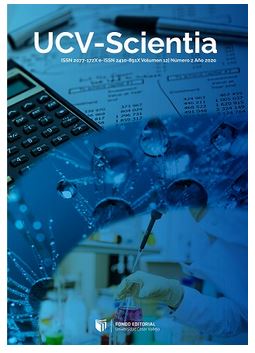Teaching model based on study habits and academic performance of students of Industrial Engineering of private university 2015
DOI:
https://doi.org/10.18050/RevUcv-Scientia.v9n1a9Keywords:
Didactic model, Study habits, AperformancecademicAbstract
The paper proposes a teaching model for university education based on the previous study of the relationship between study habits and academic performance of students; as the maelstrom with which knowledge is generated and transmitted by technology, people should make every day become more autonomous in their process of learning to learn; However, despite the great need serious deficiencies exist to achieve this goal, both the student and the teacher. To this end, a questionnaire study habits to 152 students of the first two academic cycles of the career of Industrial Engineering Universidad César Vallejo and results were correlated with academic performance; finding that the dimensions of the study habits that are significantly correlated moderately but with academic achievement are reading (0.494) and study methods (0.631); which it was taken into account to design the didactic model which was called MODIHAWC, which allow students a meaningful and lasting learning, as it takes into account the academic context, highlighting the active participation of the student through fieldwork (WC), inquiry content and generating good study habits (HA) that will improve their academic performance.
Downloads
Published
How to Cite
Issue
Section
License

This work is licensed under a Creative Commons Attribution-NonCommercial 4.0 International License.
- Share — copy and redistribute the material in any medium or format
- Adapt — remix, transform, and build upon the material.
- The licensor cannot revoke these freedoms as long as you follow the license terms.
Under the following terms:
-
Attribution — You must give appropriate credit, provide a link to the license, and indicate if changes were made. You may do so in any reasonable manner, but not in any way that suggests the licensor endorses you or your use.
- No additional restrictions — You may not apply legal terms or technological measures that legally restrict others from doing anything the license permits.













